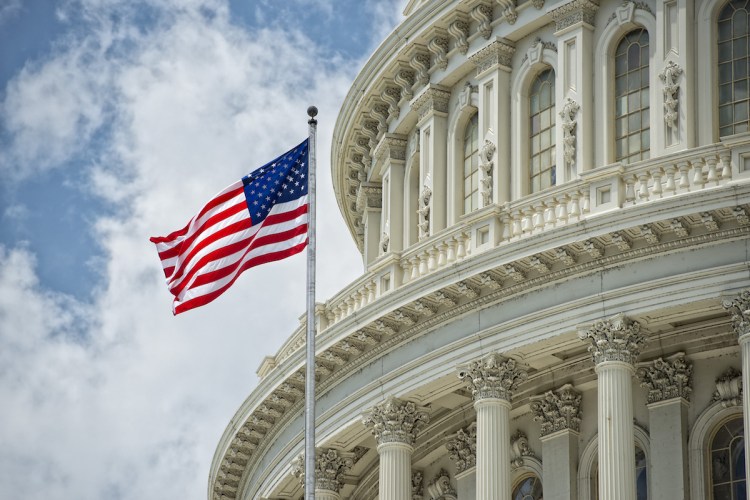This week, Sheryl Sandberg and Jack Dorsey are the lucky tech executives who will get grilled by Congress. Tomorrow, the pair will testify in front of the Senate Intelligence Committee on how they’re attempting to stop foreign groups from using tech platforms to sway U.S. voters (sans Google, who declined the Committee’s request to send Sundar Pichai or Larry Page). Then, Dorsey will also testify in front of the House Intelligence Committee.
Wednesday will mark the fourth time in the past year that representatives from large tech companies have testified in front of Congressional bodies. First, lawyers from Facebook, Twitter, and Google got an earful of criticism about how they failed to stop Russian meddling on social platforms prior to the 2016 U.S. presidential election. Then, Mark Zuckerberg sweated through two days of questions on Cambridge Analytica. In July, other tech execs tried to shoot down accusations of bias as they testified about their content moderation.
But Sandberg and Dorsey’s Senate testimony comes at perhaps the most critical moment — just two months before the U.S. midterm elections. Wednesday’s hearing should be used to get as many details for the public as possible about what exactly the tech industry and Congress’ plan is to stop the kind of discord the Russia-linked Internet Research Agency and other groups sowed on Facebook, Twitter, YouTube, Reddit, and more ahead of the 2016 elections.
Unfortunately, the past three hearings have shown just how difficult staying on task can be. Many senators and representatives still have a poor comprehension of how exactly tech companies work.
June 5th: The AI Audit in NYC
Join us next week in NYC to engage with top executive leaders, delving into strategies for auditing AI models to ensure fairness, optimal performance, and ethical compliance across diverse organizations. Secure your attendance for this exclusive invite-only event.
They’re fond of asking questions about why a specific piece of content is or isn’t allowed on Facebook or Twitter, repeating questions already asked in previous hearings, or making personal questions about the leanings of Facebook employees, rather than broader ones about how their content moderation or advertising systems actually work.
I’m under no illusions that Senators will suddenly stop and ask these types of questions at Wednesday’s hearings — the past few months of news have provided plenty of opportunity to do so, with notorious conspiracy theorist Alex Jones and Infowars’ being banned from multiple platforms, Twitter’s push to limit the reach of trolls and bullies, and a steady stream of leaks regarding Facebook’s content moderation practices.
But senators must recognize that time is of the essence. If the right questions aren’t asked during tomorrow’s hearing, then 2019 will bring another year of fruitless meetings as Congress and tech point fingers at each other for failures in 2018.
Some of the topics I’m hoping will be covered at Wednesday’s hearing include:
- Large tech companies, including Facebook and Twitter, have now gathered at least twice to talk about how they are preparing to fight ‘inauthentic behavior’ ahead of the midterm elections. What have tech companies discussed at these meetings, and how often do they intend to meet going forward? Will anyone from the federal government be represented at these meetings? And what’s the plan for passing along information gathered to the proper federal agencies?
- Over the summer, both Facebook and Twitter have rolled out archives for political and ‘issue’ advertisements, as well as a new requirement for political advertisers to verify their location and identity. How many advertisers has Facebook verified so far? (Twitter’s labeling requirements are still being rolled out for issue advertisers.) How many ads have been reported as not being properly included in the political ad archive? Are either platforms considering adding any new topics to the archive? And do either companies have any plans to use their ad archives to help direct voters to see what kind of ads their politicians are running on social platforms?
- Facebook and Twitter most recently announced that they had detected and removed hundreds of fake Pages and accounts participating in “inauthentic coordinated behavior,” with ties to Iran and Russia. How did they determine the locations of these groups? And what info can Facebook and Twitter share with Congress about how groups in these two countries may try to infiltrate social platforms ahead of the midterm elections?
- Other Pages, groups, and accounts potentially associated with the IRA were removed by Facebook in July. These accounts attempted to lure real people to in-person events, to join Facebook groups, and one Page even posted an ad for a job opening. How is Facebook looking for and attempting to thwart foreign meddling specifically in groups and events?
- In June, Twitter announced changes it made to detect spam and malicious automation more quickly. What knowledge does Twitter have on how spam and malicious automation tactics are being used by some of the organizations behind the fake and inauthentic accounts it recently removed?
- Facebook pledged to add 10,000 people to its safety and security team by the end of this year. How many have they hired thus far? Are any of them going to be specifically focused on looking at politically divisive content in the U.S., and/or receive any kind of special training before the midterm elections? What kind of activity will they be on the lookout for?
- Facebook recently got rid of 5,000 ad targeting options, mostly aimed at targeting ethnic and religious groups. The company focused on how these options could be inappropriately used by landlords advertising housing. But were these ad targeting options also being used by some of the Pages exhibiting “inauthentic coordinated behavior” that got kicked off the platform?

